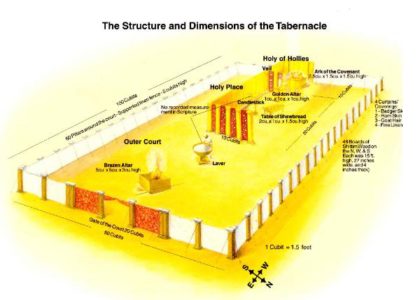Updated:- Monday, November 13th, 2023
Is Repentance a Change of Mind?
Repentance is not what we think it is, but it’s whatever the Bible says it is. Today, I shall explore repentance but I will start by examining what it’s not!
One popular definition of it is that it is a change of mind. But is this true, is it a change of mind?
Nevertheless, to repent is not to change your mind. It’s not to change your mind about sin or anything else.
A change of mind implies reversibility. You could change your mind after you have changed your mind.
In other words, after you have repented of fornication, if repentance is a change of mind, then you could decide that you no longer want to have a change of mind.
Subsequently, you may desire to revert to the position that you were before you changed your mind.
Do You Change Your Mind Multiple Times For The Same Sins?
Neither is repentance changing your mind multiple times about the same sins.
For example, to repent from stealing is not to change your mind about stealing this week because you have seen the virtues of not doing it.
However, come next week you find yourself stealing again because you have had a change of mind. That is not repentance.
Similarly, to repent is not to be sorry for your sins. Esau’s behavior proves this to be true.
“Lest there be any fornicator, or profane person, as Esau, who for one morsel of meat sold his birthright.“
(Hebrews 12:16)
“For ye know how that afterward, when he would have inherited the blessing, he was rejected: for he found no place of repentance, though he sought it carefully with tears”.
(Hebrews 12:17)
Additionally, Judas too was sorry for his sins. Nevertheless, his tears and sorrow didn’t earn him repentance for his betrayal of Christ, (Matthew 27:3).

Don’t Confuse Remorse With Repentance
Many Christians make this mistake. They confuse remorse with repentance. Don’t fall into that snare  .
.
They also erroneously believe that “godly sorrow” is repentance towards God.
But the fact is, it provokes or motivates repentance. But it is not repentance, (2 Corinthians 7:9-10).
Therefore, to repent is first to decide to stop doing an unrighteous act and then to actually stop doing the deed, then turn to God.
Consequently, the Bible informs us:
“And the rest of the men … repented not of the works of their hands, that they should not worship devils, and idols of gold, and silver, and brass, and stone, and of wood: which neither can see, nor hear, nor walk.
(Revelation 9:20)
“Neither repented they of their murders, nor of their sorceries, nor of their fornication, nor of their thefts”.
(Revelation 9:21)
Even though we must decide to repent or not we cannot accomplish it on our own. The Lord God has to intervene for us to attain repentance.
Repentance is a Two-Step Process
However, since repentance is a two-step process, a person (Believer or unsaved) having repented must then turn to God to complete it.
“But shewed first unto them of Damascus, and at Jerusalem … and then to the Gentiles, that they should repent and turn to God, and do works meet for repentance” .
(Acts 26:20)
It is for this reason, to repent is more than a change in direction. Yes, it’s a change in direction of not less than 180 degrees but towards the Lord God.
“Therefore say unto the house of Israel, Thus saith the Lord God; Repent, and turn yourselves from your idols; and turn away your faces from all your abominations” .
(Ezekiel 14:6)
As a result, Apostle Paul taught the First Century Church “repentance toward God” (Acts 20:21).
Therefore, to repent is not only a New Testament (NT) phenomenon. It’s in both the Old Testament (OT) and the NT.
If you fail to recognize its diction in the OT, when you arrive at the NT you may imagine that it means “a change of mind”, but it doesn’t.
2 Perspectives of Repentance
The Bible speaks of repentance from two main perspectives: God and man.
When it’s from the point-of-view of the Lord it often means a refusal to change. Nevertheless, God is not a man, so He has no need to repent, (1 Samuel 15:29).
For example, “The Lord hath sworn, and will not repent [or change], Thou art a priest [forever] after the order of Melchizedek”, (Psalm 110:4 and Hebrews 7:21).
In other words, God will not go back on His Word. Thus, Christ will be of the “order of Melchizedek”.
Again, “For this shall the earth mourn, and the heavens above be black; because I have spoken it, I have purposed it, and will not repent [or change], neither will I turn back from it” (Jeremiah 4:28).
Most, of the NT references to repentance, relate to humanity. However, all encourage a change in the behavior of humanity.

Do You Seek to Change Your Mind?
We have seen that to repent is not to have a change of mind. Do you “seek” to change your mind? No!
Yet, we “seek” or search out repentance, and those who have not found it have died in sin.
These include Judas and Cain.
Repentance is never a change of mind.
Repentance is more fundamental than that for we serve God not with our minds but with our hearts.
It is of the heart or spirit, not of the mind.
Seeking Repentance for the Same Thing Repeatedly?
We don’t repent of a lifestyle but of the habits that comprise it. Therefore, to repent is a gradual shedding of unrighteous deeds and a production of “fruits worthy of repentance”, which must include our hearts turning to God (Luke 3:8).
If our heart has not turned to the Lord God repentance has not taken place. A person doesn’t repent regularly for the same sins. Therefore, we repent daily but for different deeds. If we are seeking repentance for the same things repeatedly then we have not found it.
Similarly, being sorrowful for sin is different from repentance. One could be remorseful yet not cease from a sinful act and change to worship and glorify God. And one could be remorseful and not find it. To be remorseful is not to repent, and neither is repentance being sorry.
Repentance Does Produce Tears
Additionally, please don’t confuse crying or tears with repentance; however, it does produce tears. But repentance is always a function of the heart; therefore, it produces tears.
Recall Apostle Peter, after he denied the Lord and he realized what he had done he repented with tears.
Similarly, King David also repented with tears when the prophet came and spoke to him concerning Uriah’s wife.
Seeing that repentance is of the heart we could observe a person’s behavior and conclude that such may have repented. But only God knows this for certain. Repentance is between such a one and God.
To repent is to make a decision to cease committing a sinful act. After you have decided you want to stop then you must uphold that decision. Cease from your dead works, then you must turn to God.
Conclusion
The Meaning and Objective of Repentance
Finally, turn to God. We turn to God because repentance has broken our hearts and made them ready to receive Him. We cannot approach Him with unbroken spirits (hearts). He will not receive us.
Secondly, we turn to God to glorify or worship His great name. He must get the glory (Revelation 16:9).
When a person repents from a deed, such a one never returns to do it again. That person is now dead to that deed. Repentance signals a permanent change to God.
The Bible sometimes calls it dead to sins!
Therefore, to repent is to turn permanently from our “dead works” (Hebrews 6:1), or “deeds” and turn to the Lord God Almighty (Revelation 16:11).
It prevents us from appearing in the Great White Throne Judgement before God. Moreover, repent today because there is none after death.
Synonyms For Repent
In closing, another word for repent is broken-heartedness before God. A broken heart. Not a broken heart relating to love and the world, but one relating to the spirit and heaven.
This is a heart that is not hardened or stubborn. It’s obedient and forgiven before God.
One that has stopped sinning relevant to a specific act, say lying! Consequently, to repent of lying is to stop making a lie!
So, appropriate synonyms for repentance include broken heartedness; contrite spirit; contrite heart; humble spirit; change, stop, and dead to sin, (Psalm 34:18; 51:17; Isaiah 57:15).
“The Lord is nigh unto them that are of a broken heart; and saveth such as be of a contrite spirit.”
Psalm 34:18
One important consideration for repentance is the fact that it’s necessary when we are seeking God.




Thank you for this study. googled examples of repentance and it popped up. Am I close to understanding what you are saying on this?
Literally or by definition (metanoia) repentance is a change of mind (He came to himself and said, by the Holy Spirit of course eg. The prodigal), turning to God for a heart change (God grants repentance eg. God did not grant to Esau), Then showing fruit for repentance (Eph. 4:27-29 A thief told not to steal again)
Repentance is a supernatural gift of God
1. the Word by the Holy Spirit is revealed to us and we see ourselves in a mirror, we see God righteousness and judgement. 2. we turn to God and he grants us repentance or a change of heart. 3. His Holy Spirit gives us the Grace to over come sin and bring for fruit of repentance. First for salvation and then for sanctification.
Please review this and discuss where I am off track. Teaching this in a drug rehab and I want it to be Biblically correct. Thanks and God bless.
Thank you Michael for your comment and request! I’m very late in responding and for that, I apologize.
You asked: “Am I close to understanding what you are saying on this?”
First thing first Michael, none of the incidents in the Bible imply or states that repentance is a change of mind for it’s not.
God doesn’t grant repentance! We decide to repent after hearing the Word of God.
So, repentance is not a gift from God. If it were everyone would repent when he or she hears the Word of God. But that is not the case.
1. the Word by the Holy Spirit is revealed to us and we see ourselves in a mirror, we see God righteousness and judgement.
Repentance has its root in love and obedience, not fear.
2. we turn to God and he grants us repentance or a change of heart.
The Word of God convicts us and we decide that we must change.
This is when we produce the fruit of repentance. This act or behavior shows that the heart has received the Word and acted as the Word guide.
Thus a thief doesn’t have to return what was stolen but he must never steal again. That is repentance.
It’s not up to God whether we repent or not. It’s up to us and the state of our hearts.
He desires that all men come to repentance but all won’t!
He doesn’t grant repentance. We decide to repent after the Word of God has convicted us!
3. His Holy Spirit gives us the Grace to over come sin and bring for fruit of repentance.
First for salvation and then for sanctification.
?????
Michael, before you start to teach please spend quality time being tutored and in the Word with fasting and prayers seeking God!!